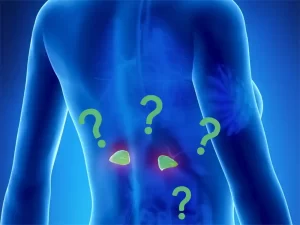Do you think you are approaching menopause?
The word “menopause” refers to the last or final menstrual period a woman experiences. So a women is technically in Menopause when she has had no menstrual period for a year. The age you experience it can vary, but it typically occurs in your late 40s or early 50s. Menopause before the age of 40 is called premature menopause and before the age of 45 it is called early menopause.
It is a gradual process from when the symptoms first start to appear so even though you may be experiencing some of the symptoms that are associated with menopause – like hot flushes, night sweats, insomnia, low libido etc you could be pre-menopausal – the stage before menopause.
Menopause is not a disease
Although many women may feel like menopause is a disease it isn’t. It is more like a stage of life. Menopause is sometimes called ‘the change of life’ as it marks the end of a woman’s reproductive life. At menopause, ovulation no longer occurs and production of oestrogen and progesterone ceases. If you aren’t sure if you are menopausal you can have your hormones tested. A blood test will measure your Folicle Stimulating hormone and if it is consistently above 30 and you have other symptoms such as no periods for 12 months, then you are probably menopausal.
As you approach menopause, the production of female hormones (oestrogen and progesterone) by the ovaries starts to slow down. Hormone levels tend to fluctuate and you may notice changes in your menstrual cycle such as cycles may become longer, shorter or totally irregular bleeding may become lighter bleeding may become unpredictable and heavy.
Eventually, your hormone levels will fall to a point where menstruation (periods) will cease altogether and the menopause is reached.
Although fertility after the age of 45 is low, you still need to use contraception to prevent pregnancy (even if only barrier contraception such as male condoms), until you have had one year without a natural period if you re over 50 years old, or two years without a natural period if you’re under 50.
Symptoms of Menopause
I remember my mum telling me that she breezed through menopause because she didn’t get any hot flushes or night sweats. These are the symptoms a lot of women associate with being in menopause. However you only have to join any menopause support group on Facebook to realise there are a truck load more.
There are some symptoms that can be truly associated with menopause while other symptoms are part of normal ageing or can occur in non menopausal women but are what are known as atypical symptoms. The 3 that are truly associated with menopause are:
Hot Flushes
Around 75% of women will experience hot flushes during menopause. A sudden feeling of heat in the face or neck which can then spread to the chest. Usually lasts for 1-2 minutes and can be experienced with perspiration, a chill and dizziness.
Genital Atrophy
The vaginal wall becomes drier and thinner as a woman ages. This may make sex painful or uncomfortable which then leads to her not wanting to have sex.
Increased risk of osteoporosis
Bone mass decreases as we age but is more rapid during menopause due to changes in hormone levels.
Other Symptoms of menopause
While the atypical symptoms of menopause include:
- Burning on urination
- Depression
- Dizziness
- Forgetfulness
- Headache
- Incontinence
- Insomnia
- Irregular menstrual cycles
- Irritability
- Itching labia
- Lack of energy
- Lack of self confidence
- Low libido
- Migraine
- Mood swings
- Muscle or joint pain
- Palpitations
- Pins and needles
- Restless legs
- Shortness of breath
- Tenseness
- Tiredness including when we wake up
- Vagional discharge
- Weight gain
No wonder women start to feel like they are going crazy or their body is failing them.
Does lack of sleep make it on to your top 3 symptom list?
According to the national sleep foundation, approximately 61% of menopausal women experience sleep problems, mainly brought about by fluctuating & declining hormones and night sweats. As I’m sure you already know, this can result in drowsiness during the day and heighten other menopause symptoms such as brain fog, mood swings and anxiety.
Why do some women have a lot of symptoms and others have none?
So now that we know what menopause it. Why do some women experience a lot of these symptoms while others seem to breeze through with nothing? The easiest explanation I have for this is that it is like the four legs of a table. I’m sure we have all been to a café where the table we are seated at has a wobbly leg.
How annoying is it?
Every time something is placed on the table or someone leans on the table the whole table moves. Jeremy (my partner) is forever folding up serviettes or coasters to prop under one of the legs to steady it.
Our menopause table is the same. If one or more of the legs of the table are out of balance it makes the whole table wobbly. And what are the 4 legs?
They are our physical hormones – oestrogen, progesterone, testosterone etc
Lifestyle – diet and exercise
Stress – this plays a big part
And our emotions
So lets take a look at each of these areas and how we can bring back some balance in a natural way without having to resort to synthetic hormone replacements. We are wanting to look not just at treating the symptoms but helping women holistically.
The first leg of the menopause table is our Physical Hormones
- The first of the legs on our menopause table is the Physcial leg – this is our hormones such as oestrogen, progesterone and testosterone. All of these hormones levels drop when women go through menopause. The change in hormone levels plays a big part in the symptoms women may experience during this time of their life.
- 3 types of Oestrogen – oestrogen is a grouping term similar to the word fish. There are lots of different kinds of fish.
Oestrodial and Oestrone – strong hormones – Oestriol – low levels except during pregnancy. Oestrodial is the one we want to try and maintain to help prevent or ease menopausal sysmptoms.
- Maintaining optimum levels of Oestradiol, progesterone and testosterone are all important.
- None of the hormones act independently – they all work together and must be present in the right levels to help the body deal with the symptoms of peri menopause.
What happens if we have low oestrogen levels?
- Symptoms can include:
Irregular periods - Infertility
- Weak bones
- Painful intercourse
- Hot flushes
- Depression
- Increase in urinary tract infections
- Vaginal dryness
How does Low progesterone affect menopause
Progesterone is the Feel good look good hormone. So without it we can feel like crap. Our skin becomes saggy and our hair falls out.
Progesterone is also responsible for an increased libido plus it encourages mucous in the vagina to be released so without it sex can be pretty painful.
Symptoms of low progesterone include:
- PMT
- Depression
- Decreased sex drive
- Heavy blood loss
- Migraines
- Hypoglycaemia
- Weight Gain
- Breast Tenderness
- Gall Bladder problems
And what are the benefits of progesterone?
- Minimises hot flushes or night sweats.
- Milder menstrual cycles.
- Awesome sleep.
- Easier Weight loss.
- Improves bone health.
- Decreases or controls anxiety.
- Thicker hair on your head.
- Improves libido.
- Helps with some neuropathies like a LOT.
- And partner’s favourite — bigger fluffier breasts — there is even research to show it helps prevent breast cancer by getting rid of fibrocystic or dense breast tissue. This is why it sometimes hurts when you first start using natural progesterone.
I am a huge fan of bio-identical progesterone for women who are going through menopause. Email me to make an appointment with me to learn more.
The second leg of the menopausal table is lifestyle
Diet and Exercise play a huge role in hormone health– eating the wrong foods for your body especially a lot of sugars and simple carbohydrates, or too many processed foods can lead to hormone imbalance. Not getting enough good fats to make hormones, not drinking enough water and not exercising regularly all impact on being able to maintain healthy hormones.
We need to be doing at least 30 minutes a day 4-5 days per week to get ready for menopause and reduce the severity of the symptoms. Weight bearing exercise is particularly beneficial for preventing bone density loss the primary cause of osteoporosis. Exercise is also beneficial for reducing cholesterol in the blood, improving circulation and reducing the risk of heart attack.
Supplements to help us during menopause
OmegaGize3 is a fish oil supplement that can support a healthy cardiovascular system, energy levels, bone health and brain function, and enhance general health and wellbeing in adults. It combines the power of three core daily supplements—omega-3 fish oil, vitamin D3, and CoQ10 (ubiquinone). These supplements are combined with our proprietary essential oil blend.
Mineral Essence™ is a balanced, full-spectrum ionic mineral complex enhanced with essential oils. Ionic minerals are the most fully and quickly absorbed form of minerals available.
NingXia Red® combines the extraordinary wolfberry superfruit with pure Orange, Yuzu, Lemon, and Tangerine essential oils, along with blueberry, aronia, cherry, pomegranate, and plum juices to deliver a whole-body nutrient infusion.
Chosen specifically for their flavour and benefits profiles, these essential oils also contain d-limonene, a powerful, naturally occurring component found in citrus oils.
Master Formula Essential is a nutrient-rich complex providing micro-emulsified vitamins and minerals along with food-based nutriment from a fruit juice blend. Containing added vitamins and minerals.
Stress is the third leg of the menopausal table
The female endocrine system (the system which includes our hormones) is very sensitive to stress. This stress could be from too much work and not enough sleep.
For many women menopause occurs at a time in their life when they are undergoing a lot of change such as their children growing up and leaving the nest. They realise that they probably wont have anymore children – this is an interesting time as even women who definiately don’t want anymore children can still be slapped in the face with the reality that it is no longer possible for them to actually have children. It can be funny how the brain wants what it can’t have.
We can be faced with the daunting prospect of ageing. We live in as society that puts a lot of emphasise on how we look. This impacts on our confidence and feelings of self worth.
They are re-evaluating their life including their relationships, possibly downsizing their living arrangements, they could be caring for ageing parents and even questioning their own immortality. I know that I was driving home one day and I actually thought about how old I was turning this year and realised that I would need to live at least until I was 90 in order to have half of my life left ahead of me. I was shocked and immediately started thinking about all the things I haven’t done with my life that I intended to.
Now men go through this same stage and we often call it a mid life crisis. We excuse their somewhat irrational behaviours during this time and we don’t suggest they go on synthetic hormones to deal with it. Yet isn’t that what is suggested for women?
The modern-day pressures women experience trying to juggle everything that is expected of them, without adopting good stress management techniques, puts a strain on their sympathetic nervous system. Under chronic stress, cortisol levels rise and this can cause a reduction in other hormones being produced.
Emotional issues from past traumas are the 4th leg of the menopausal table
If we don’t deal with our emotions when they first come up our brain stores them away until we are able to process them. This might be the death of a child, a marriage breakdown or other trauma.
Often these emotions come back up during menopause as other emotional issues we are dealing with compound them.
Emotional toxins can be just a harmful on our well-being as environmental and chemical ones.
The best natural remedy for menopause
Despite what others will tell you, you don’t have to surrender to your annoying or even debilitating symptoms! Don’t put up with fatigue, mood swings, weight gain, bloating, anxiety, hot flushes or poor sleep!
Instead you can bust through them naturally.
The truth is….perimenopause and menopause can feel great !
So what is the best natural remedy for menopause?
Essential Oils of course.
Clary Sage Wellness Essential Oil– this truly is the elixir for the menopausal women and I’m sure when you read this list you will see why.
It has traditionally been used in aromatherapy:
- To regulate a healthy menstrual cycle;
- To promotes menstrual flow;
- To relieve menstrual cramps and pain;
- To relieve fatigue and feelings of weakness;
- As an antispasmodic;
- To decrease excessive sweating;
- To maintain a healthy appetite;
- To reduce flatulence; and
- To help reduce symptoms and occurrence of indigestion.
Bergamot Wellness Essential Oil
Traditionally used in Aromatherapy:
- To relieve symptoms of stress and mild anxiety;
- To relieve and reduce body temperature
- To induce sleep; and
- To promote healthy sleep patterns.
Cedarwood Wellness Essential Oil
Traditionally used in Aromatherapy:
- To relieve fatigue and feelings of weakness;
- To decrease symptoms of stress;
- Aids the body to cope with environmental stress;
- To support a healthy stress response in the body; and
- To relieve mild tissue oedema.
Lavender Wellness Essential Oil
Traditionally used in Aromatherapy:
- To decrease the symptoms and duration of headaches;
- To decrease colic (wind/gas pain);
- To promote energy levels;
- As an analgesic to relieve pain;
- To relieve mild nerve pain;
- To relieve mild joint aches and pains;
- To decrease mild rheumatic aches and pains;
- To help reduce mild muscle spasms;To help relieve symptoms of muscle strain;
- To reduce abdominal and digestive spasms;
- To reduce occurrence of abdominal spasm;
- As an antispasmodic;
- To reduce the symptoms of stress;
- To reduce the symptoms and occurrence of mild anxiety;
- As a nervous system relaxant; and
- To calm nerves.
Some of other essential oils that menopausal women swear by include:
Sclaressence – this was designed by Gary Young basically to help Mary Young with her menopause.
Dragon time – although mostly used by younger women for period pain and pms this can also help menopausal women to fight off the monthly dragon.
Lady Sclareol – positively influences mood and makes women feel more feminine so great for menopause plus this one smells the best.
There are also essential oils for balancing emotions.
Learn more about natural solutions for menopause
Take my free Hormone Quiz.
If you would like to discuss natural solutions and essential oils for your own situation please email me to make an appointment.










 Subscribe to Hot Oily Mumma
Subscribe to Hot Oily Mumma